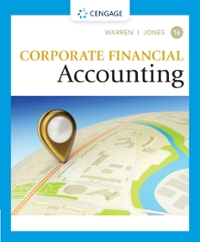Question
MULTIPLE CHOICE 1.Which of the following is subject to income tax? a.SSS and GSIS b.Philippine Health Insurance Corporation (PHIC) c.Local Water Districts d.Philippine Amusement and
MULTIPLE CHOICE
1.Which of the following is subject to income tax?
a.SSS and GSIS
b.Philippine Health Insurance Corporation (PHIC)
c.Local Water Districts
d.Philippine Amusement and Gaming Corporation (PAGCOR)
2.One of the following is exempt from income tax
a.Proprietary educational institutions
b.Private cemeteries
c.Government educational institutions
d.Mutual savings bank
3.Which of the following is taxable based on income from all sources, within and without?
a.Domestic corporations
b.Resident Foreign Corporations
c.Non-resident Foreign Corporations
d.All of the choices above
4.Which of the following does not have the benefit of claiming deductions in computing income tax?
a.Domestic Corporations
b.Resident Foreign Corporations
c.Non-resident Foreign Corporations
d.All of the choices above
5.Aside from the ordinary corporate income tax of 30%, what other tax(es) may be Imposed on corporations under Philippine income tax laws?
a.Minimum corporate income tax
b.Passive income tax
c.Capital gains tax
d.All of the above
6.Interest income on bank deposit or investment with maturity period of at least five (5) years received by a corporation is subject to:
Domestic
Resident Foreign Corp.
Non-res. Foreign Corp.
a.
20%
20%
30%
b.
Exempt
Exempt
Exempt
c.
20%
20%
Exempt
d.
20%
Exempt
Exempt
7.As a rule, there is no income tax if there is no income. Which of the following is the exception?
a.Capital gains tax on sale of land and/or building
b.Capital gains tax on sale of share of stock outside the local stock exchange
c.Tax on passive income
d.Regular corporate income tax
8.Which of the following statement is not correct?
a. Taxes may be imposed to raise revenue or to provide disincentives to certain activities within the State.
b. In the exercise of the power of taxation, the State can tax anything at anything at any time.
c.The State can have the power of taxation even if the Constitution does not expressly give it the power to tax.
d. The power of taxation in the Philippine Constitution are grants of power and not limitations on taxing powers.
9.Which of the following is correct?
LegislativeAdministrative
a.Fixing of tax ratesYesYes
b.Valuation of object of tax YesNo
c.Collection of taxYesNo
d.Assessment of tax liability NoYes
10.Statement 1: A provision on taxation in the Philippine Constitution is a grant of power.
Statement 2: The power to tax incudes the power to destroy.
Statement 3: Sumptuary purpose of taxation is to raise funds for the government.
A
B
C
D
Statement 1:
TRUE
TRUE
FALSE
FALSE
Statement 2:
TRUE
TRUE
TRUE
TRUE
Statement 3:
TRUE
FALSE
TRUE
FALSE
11.Compliance with procedural requirements must be followed strictly to avoid collision between the State's power to tax and the individual's recognized rights.
a.Due process of law
b.Equality in taxation
c.Non-infringement of religious freedom
d.Non-impairment of obligations and contracts
12.Taxable only on income from sources within the Philippines, except
a.Resident citizen
b.Nonresident citizen
c.Resident alien
d.Nonresident alien
13.Dehghong, a resident citizen employee provided the following data for 2019 taxable year: (Bonus question - review the pdf discussion)
Compensation income (gross of deductions below)P450,000
Deductions made by the employer
SSS premiums contributions6,000
Philhealth contributions8,400
Pag-ibig contributions2,400
Union dues1,200
Income tax withheld35,000
How much is the income tax payable of the employee?
a.P3,000
b.P38,000
c.P30.000
d.P5.500
14.Delta Corporation bought a condominium unit for P6,000,000. The fair market value of the property per Tax Declaration is P6,800,000 while the zonal value is P6,500,000. It was transferred in the name of Pedro, one of its executive, for a lower consideration amounting to P5,800.000. how much is the fringe benefit tax?
a.P0
b.P538, 462
c.P329,412
d.P470,588
15.Based the previous number, assuming the selling prices is P7,000,000, how much is the fringe benefit tax?
a.P0
b.P538, 462
c.P329,412
d.P470,588
Step by Step Solution
There are 3 Steps involved in it
Step: 1

Get Instant Access to Expert-Tailored Solutions
See step-by-step solutions with expert insights and AI powered tools for academic success
Step: 2

Step: 3

Ace Your Homework with AI
Get the answers you need in no time with our AI-driven, step-by-step assistance
Get Started


